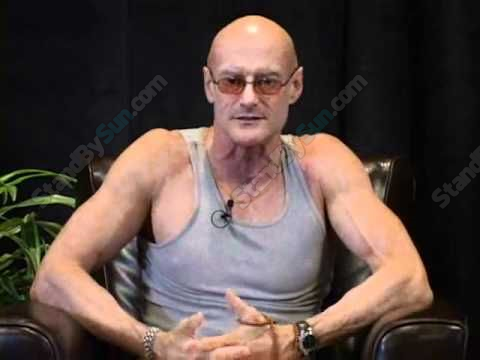Digital Download Immediately
 Ken Wilber - An Integral Organizational Leadership Seminar
Ken Wilber - An Integral Organizational Leadership Seminar
Download unlimited when you buy Ken Wilber - An Integral Organizational Leadership Seminar Course at sunlurn. The market leader in online learning - Offers a variety of diverse topics: Internet Marketing, Forex & Trading, NLP & Hypnosis, SEO - Traffic, …
Fifty participants, a dozen staff and Ken Wilber- all of the makings of a truly unique learning experience as CEOs, coaches, consultants, academics mingled to explore this elusive topic of the application of integral theory and practice to leadership in organizations. Virtually everyone left feeling they had gotten something of value; some left feeling that the workshop fell short of the mark.
The facilitators, presenters and staff did a wonderful job of making sure that we had plenty to do and think about. Bert Parlee, John Forman, Brett Thomas, Michael Putz and Leo Burke each gave the community things to think about and experiences that grounded theory. Ken Wilber was superb in this workshop. He seemed far more grounded and focused than in THE Integral Leadership (now Integral Consciousness) Workshop of a few months ago. I think this was because he seemed truly tuned into his audience.
I had the chance to ask the first question in day one when Ken sat on stage in front of the participants. I pointed out that he had been touted earlier in the day as the foremost thinker about Integral Leadership- if I correctly understood the presenter who said this. Then I asked, “What is Integral Leadership?
My paraphrase of the response: Integral Leadership is having a vision others want to follow.a man or woman who knows more, sees more and provides guidance to others who want to move forward. The capacity to lead has to touch all of the areas that humans have to deal with. We need a map, an integral map. An integral leader is a person who has made the map his/her own and embodies it.
The highlight of the workshop was probably something of a surprise to all of the participants: Diane Hamilton, a student of Utah’s Gengpo Roshi, led us through a process called Big Mind. Personally, this process led to an altered state of consciousness that was stronger (and has been longer lasting, even though episodic) than anything this spiritual novice has experienced.
Every day we did meditation and some physical movement, hike, Qigong, yoga.
Michael Putz, a director at Oracle, did an interesting presentation on innovation, particularly disruptive innovation that can have the impact of radically altering the course and focus of a company. Leo Burke gave a presentation on strategic thinking. This was my personal great disappointment of the workshop.
Leo has been gaining considerable experience at Notre Dame over the last couple of years with introducing executives to Integral Leadership. We learned very little about what he has learned about effective approaches to this or the models he uses.
John Forman, Bert Parlee and Brett Thomas were the workhorses of the workshop. They presented on integral change, introduced levels and experiential exercises to speak from different levels in “leader” roles, as well as Robert Kegan and Lisa Laskow Lahey’s work on competing commitments and the four languages from How the Way We Talk Can Change the Way We Work.
SD-based concepts (blue, orange, green and yellow) were used to structure experiential activities, but their use was stereotypical and lacked the rich perspectives of other developmental models such as Commons’ work on systems of meaning making (my interpretation) no did they attempt to integrate the idea of lines and memes in any fashion.
This seems to me one of the basic dangers in the way an integral approach is being introduced- an oversimplification that tends to put behaviors into boxes and not respect the complexity of individual and context.
Of course, one of my critics would say that is because I am green that I would make such a comment. I am reminded of Sara Ross’ observation based on S.W, Rosenberg’s work, Systematic thinkers [and green is the first arena of systematic thinking] are flexible, independent, not reliant on social grouping or definition, and conceive themselves as independent entities, though they are not anti-social.
hey require a sense of independence and freedom of thought and action.” So, my critic falls into the trap that was evident in the frameworks introduced in this workshop. But I think this is the cutting edge challenge in integral work: to find ways of representing and learning from complexity.
I had the opportunity to tape brief interviews with a number of participants. An extraordinary group of people! But it was from some of them that I heard comments that I agreed with, e.g., that the workshop seemed geared at too low a level conceptually with some exceptions. It is also worth noting that developing Integral Leadership is in its formative stages. Perhaps this workshop reflects both how much we have learned and how very much more we have to learn.